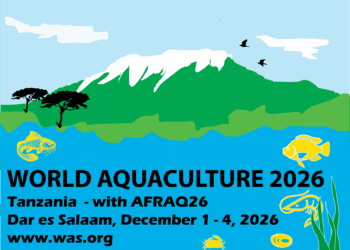Overfishing: impacts, causes and what to do – The ocean covers more than 70 per cent of the earth’s surface, providing food for more than 3 billion people and jobs for about 300 million. It generates economic benefits in the trillions of dollars and is an important part of the carbon cycle. A healthy ocean is crucial for both terrestrial ecosystems and the global economy.
However, decades of poorly regulated fisheries have depleted global fish stocks and pushed some species to the brink of extinction. In addition, climate change is warming the waters of our oceans, deteriorating critical habitats such as coral reefs and mangroves, negatively affecting marine life.
A recent article published in Delivery Rank, explores in detail the impact of overfishing, the main causes, proposed solutions and how consumers can contribute.
The impact of overfishing
According to the FAO, the number of overfished stocks more than tripled in 2019 compared to the previous 45 years. The percentage of stocks fished at a biologically unsustainable level increased from 10% in 1974 to 35.5% in 2019. The South-East Pacific Ocean recorded the highest ratio of stocks fished at unsustainable levels, at 66.7%.
Left unchecked, overfishing will have catastrophic impacts that will extend beyond the oceans, affecting fishing industries, tourism and global food security.
Environmental impacts of overfishing
1. Loss of biodiversity: overfishing disrupts the balance between predator and prey, causing significant losses throughout the food chain.
2. Endangered species: many marine species, such as sturgeon and spoonbill fish, are now critically endangered due to overfishing.
3. Bycatch: animals caught unintentionally often die or are seriously injured, accounting for about 10.8% of the spoils of marine fisheries.
4. Excessive algal growth: the removal of herbivorous fish contributes to algal blooms that choke marine life.
5. Damage to coral reefs: destructive overfishing damages coral reefs that are essential to many marine species.
6. Global warming: overfishing disrupts the carbon cycle, contributing to global warming.
Social and economic impacts
1. Global food security: overfishing threatens the main source of protein for millions of people in developing countries.
2. Loss of livelihood: small-scale producers cannot compete with industrial producers, risking poverty and malnutrition.
3. Inequality between countries: government subsidies in rich countries allow fishing in the waters of poor countries, increasing economic inequality.
4. Unemployment and loss of income: overfishing threatens the socio-economic stability of those who depend on oceans and freshwater.
Causes of overfishing
1. Demand for fish products: increasing demand drives unsustainable aquaculture practices.
2. Harmful government subsidies: subsidies incentivise overfishing, distorting supply and demand.
3. Illegal, unregulated and unreported (IUU) fishing: IUU activities contribute significantly to overfishing.
4. Profit-seeking culture and corruption: corrupt practices and profit-seeking fuel the crisis.
Proposed solutions
1. Temporary and local fishing bans: protect fish stocks with temporary bans and international agreements.
2. Control IUU fishing: improve monitoring, control and surveillance measures.
3. Reduce or eliminate harmful subsidies: promote beneficial subsidies for sustainable fishing practices.
4. Expand marine protected areas: designate more areas as MPAs to protect biodiversity.
5. Reduce bycatch: modify fishing techniques to reduce bycatch.
6. Implement rights-based management: regulate access to fishing grounds for sustainable management.
7. Shift to sustainable fishing practices: adopt techniques that maintain fish populations at sustainable levels.
8. Manage aquaculture sustainably: reduce the use of harmful chemicals and prevent the escape of fish.
Overfishing is a serious threat that requires collective action by governments, the fishing industry and consumers. Through a combination of regulation, conservation efforts and sustainable practices, we can protect our oceans and ensure a sustainable future for future generations.
Overfishing: impacts, causes and what to do








